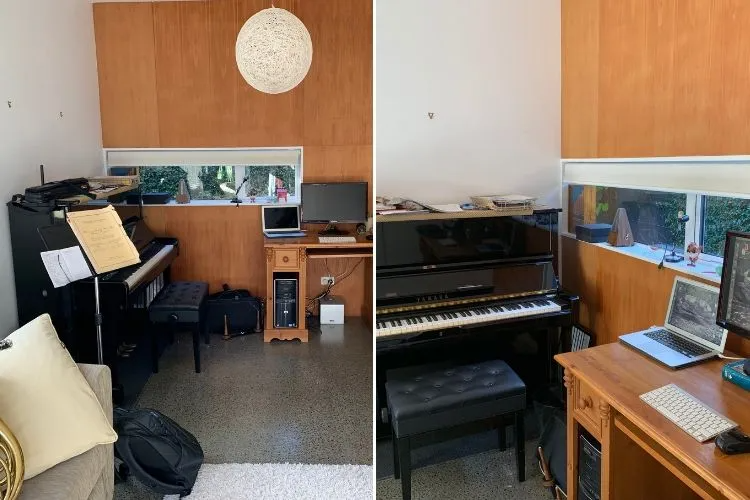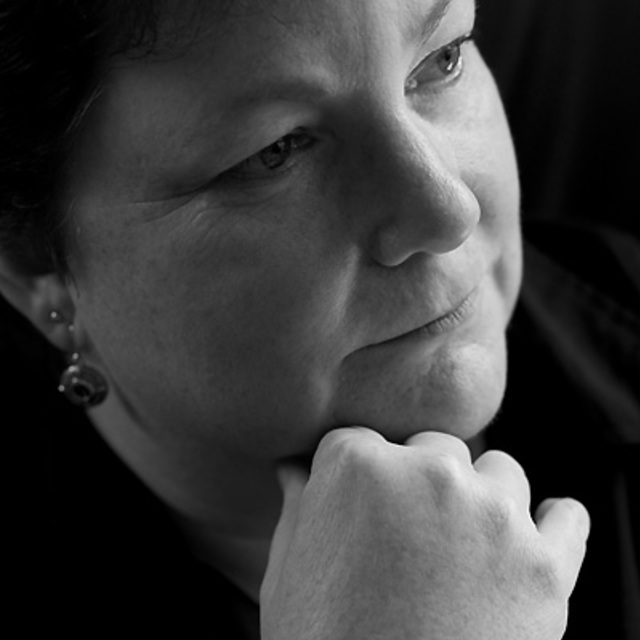What does a typical composing day look like for you?
There isn’t really a typical composing day, as I have to fit composing around a lot of other activities, particularly University teaching schedules. I try to fit most projects into the period between November to February, but of course that doesn’t always work, depending on deadlines. I’ve found it is important for me to fit in what I term “panic time” at the beginning of the process – this may take days or weeks, again depending on the deadline. I’ve come to accept that I need this procrastination time, to start a subconscious sifting of ideas. When this process becomes unbearable to sustain I start work properly! I don’t tend to work for more than 2 hours at a time, so it’s all pretty free-form.
Please describe the space where you compose your music. What makes this space special and why have you chosen it?
I’m generally a solitary rather than a social person. Water, whether sea, beach, bay or river is a great influence. I would love to be able to say I go walking on the beach or in the forest and come out with the piece complete, but as much as I may find inspiration in those places, I need a piano and a workspace. So my composition space is wherever my piano is! The “piano room” is therefore an important location in the house and I try to find the most isolated spot, as I get really inhibited if I think people can hear what I’m doing.

What equipment (including software) do you have in your space?
I have a simple setup of piano and Sibelius notation software. I’d love more – fancy DAW’s, massive monitors and instrumental sound banks, but so far haven’t got around to it. Our house also contains a lot of musical instruments, around 16 last count. I need a lot of pencils as I lose them as soon as they are put down. Other than that I’m pretty low maintenance.
Please describe your typical composing process. Does it change with each piece?
I begin with a process of improvisation at the piano, although I’m always hearing in my mind the sound of the instrument I’m writing for and seeing in my mind the performers I’m writing for. I also place them in my mind in an imaginary or real performance space. This imagination process helps form the initial idea. I work with pencil and manuscript, in a kind of shorthand. Once I have the opening idea I’ll also gather together a variety of supporting material, transpositions, transformations, chord sequences, rhythmic permutations. From there I move to the computer and usually end up through-composing in a constant move from manuscript to computer. I find I work best in small passages of time, a couple of hours at the most, any time of day. If I carry on further I end up throwing away the ideas.

What are you currently working on in your space?
I’ve been taking a break over the last 6 months, which has been good timing as things have been pretty full-on. Over the last two years I’ve composed five works - Murmuration for violin trio, for Helene Pohl, Nikki Chooi and Alexander Pavlovsky, a Suite for double reed quartet commissioned by the NZ Double Reed Society, a work for inclusion in the New Zealand Partita Project commissioned by Stephen de Pledge, This Watershed Time for six solo voices and double SATB choir commissioned by Voices New Zealand Chamber Choir with the King’s Singers, and Dance of the Wintersmith for violin and piano, commissioned by Andrew Beer and Sarah Watkins. All of these works can be found on the SOUNZ website.
SOUNZ blog is designed for expressive discussion and debate amongst the arts and broader community. This is intended to be a safe space so please remember to keep comments respectful and avoid personal attacks, criticisms of specific organisations and defamatory language. Comments are moderated to ensure that they comply with SOUNZ’s Community guidelines.
